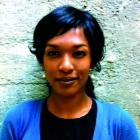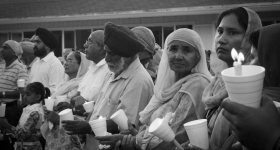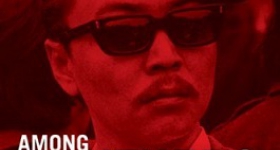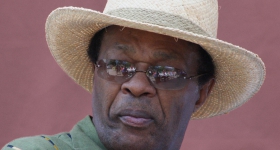Writer Dharushana Muthulingam
Art Chen is a longtime fighter and family physician. Coming of age amid the civil rights protests of the early 1970s, he has fused advocacy and social justice work into his practice of medicine. He has served as medical director for Asian Health Services (AHS) as well as numerous appointments at the county, state and national level, advising in issues of environmental and minority health at the National Institutes of Health and National Lung Foundation and testifying before Congress and President Clinton’s Health Task Force. He continues to see patients, mentor aspiring health workers and fight for his community in Oakland, CA. In December, Time magazine declared The Protestor as the Person of the Year, and he was among several activists profiled in that issue for his participation in the Occupy Wall Street protests.
What drew you to work in community health centers?
When I took ownership of wanting to go into medicine, I wanted it to be about social justice. I was a product of the civil rights and antiwar movement. I heard about what was going on in Oakland in ’73, and thought, that’s the kind of place I would like to work: in public health, in the community center. I did my residency in the Bronx and trained at the Chinatown Health Clinic in New York, reinforcing my ideals. I kept in touch with AHS through the years, attending national marches and visiting often. When it was time for [my wife and me] to come back to the left coast in 1983, they had space for us to join.
Do the ideals of your youth still influence your work now?
It’s definitely there. It’s different, though: You’ve grown older, you’ve seen a lot more, it tends to “conservatize” you. Certain things you thought would work, don’t work. It tempers some of the idealism. The principles and the conditions of gross inequities are still there, and in my time, it has actually gotten worse. So the ideals of a more just society of health equity, of fairness, are still there. The commitment and the level of the enthusiasm will wax and wane. This is one of the better periods because of the Occupy Wall Street movement in catalyzing energy and clarity, especially after a really bad period during the Bush administration.
Are there differences between activism then and now?
There are big differences in the way that this new generation is being brought up. Not to say that we have accomplished everything; we still have racism, sexism, a lot of isms. But we have created a society where it is not cool to be racist or sexist. We have created a safe space for people to be critical when facing isms. Many people are brought up to appreciate diversity with fewer hang-ups. Even if we are not finished, this generation can take it to the next level.
What role do you think the community clinic has in the future of American health care?
Along with the public hospital, it will always be a safety net for those who are excluded. Obama will insure many millions, but there will be at least 18 million who aren’t covered. There will always be doctors who refuse to see those with lower incomes; there will always be undocumented immigrants; there will always be people society excludes. Until we have a national health insurance system that treats everyone as equals, there will always be a need. And just because you are a safety net, it doesn’t mean that this is not an opportunity to show excellence. A lot of community health centers have the most innovative systems because they attract smart, passionate people who show up and face some our most vexing social issues, and they come up with solutions. Finally, when working with disenfranchised populations, you can play a democratic role in amplifying their voice. You can accomplish a lot when you understand them as potential partners and as leaders for advancing the rights of that community. Especially in community health centers, there is a rich history of partnership.
Dr. Art Chen’s Advice to Young Asian American Activists
Hang on to the ideals. Then pursue them in depth! It’s one thing to say, “I want to take care of poor people,” another thing to go out and do it.
Build strong self-awareness. Find out where you really are, in the most honest way. When you go this route of trying to pursue your ideals, many will ask you to do things that you don’t automatically want to do. If you know yourself, you can be up front and draw that line.
Work with a community-based organization. You will get constant exposure to what’s going on and what’s needed. You learn the real needs of society and how people are addressing them. It is very instructive. You’ll get a reality check of how bad the housing problem or job training or the lack of health insurance is.
Get a support group. Activism can be very lonely. In a lot of professional settings, you become a minority. Look for people who feel as strongly and have the same ideals, who are not dismissive of “the young and stupid.”
One of my professors in medical school advised me: Always go to demonstrations. Stop and listen for a few minutes. Take the leaflet and read it. Think about what it would take for you to organize a demonstration about something you felt really passionately about. It is worth your two minutes to absorb it and be informed.










Comments